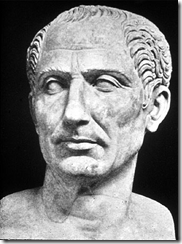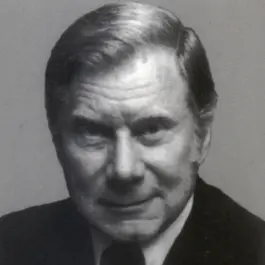
Originally by Edmund Opitz in the November 1985 issue of The Freeman.
 Classical liberalism created a revolutionary new view of the political State, its nature and proper functions. We may better understand this sea change in political thought if we contrast the secular state of liberalism with it polar opposite found in the ancient world. The great authority on the ancient city, Fustel De Coulange, tells us that “the state was a religious community, the king a pontiff, the magistrate a priest, and the law a sacred formula.” The Greek polis was Church and State in one, Julius Caesar was Pontifex Maximus; the citizen was bound to the State body and soul. When civic and religious obligations are combined and owed to the same institution we have that absolute power dreaded by Lord Acton.
Classical liberalism created a revolutionary new view of the political State, its nature and proper functions. We may better understand this sea change in political thought if we contrast the secular state of liberalism with it polar opposite found in the ancient world. The great authority on the ancient city, Fustel De Coulange, tells us that “the state was a religious community, the king a pontiff, the magistrate a priest, and the law a sacred formula.” The Greek polis was Church and State in one, Julius Caesar was Pontifex Maximus; the citizen was bound to the State body and soul. When civic and religious obligations are combined and owed to the same institution we have that absolute power dreaded by Lord Acton.
It was the great achievement of classical liberalism, with its roots in the post-Reformation era and mood, to desacralize the political order, thus stripping the State of its religious and moral pretensions. Holy empires and sacred monarchies claiming transcendent sanction have prevailed throughout history, and the State was venerated as an order of salvation. From now on, however, the sanctions of the State were to be much more modest, its objectives limited to constabulary functions; “the night watchman State,” as a critic dubbed it.
No longer would the State assume responsibilities beyond its competence for the moral and spiritual regeneration of men and women. “It is not for a disdain of spiritual goods that liberalism concerns itself exclusively with man’s material well-being,” writes Mises in Liberalism, “but from a conviction that what is highest and deepest in man cannot be touched by any outward regulation.” (p. 4) The tutoring and renewal of the human mind and spirit would, from now on, be the task of Church and School—in the broadest sense—so these institutions were pried out from under the State’s umbrella and assumed the autonomy they must have if they are to achieve their purposes.
“Separation of Church and State” is repeated endlessly and mindlessly among us, so that the idea of a secular State is now commonplace. But it was a novel idea in the 17th century, and it has not taken root anywhere in the world except in regions responsive to the influence of classical liberalism. What was the seed idea which eventually germinated as the concept of a secular State? And what was the milieu in which the seed took root? It was a milieu in which an aura of sanctity might be attached to virtually anything; trees, rivers, stones, animals, as well as to the social order itself. And of course there were priest-kings, divine monarchs and holy emperors.
The Old Testament records a sharp break with this mentality, a new departure which removes the idea of the holy from nature and society and rests it exclusively with the transcendent deity: “I am the Lord, your Holy One, the Creator of Israel, your King.” H. Frankfort, in his Kingship and the Gods, elaborates: “In the light of Egyptian, and even Mesopotamian, kingship, that of the Hebrews lacks sanctity. The relation between the Hebrew monarch and his people was as nearly secular as is possible in a society wherein religion is a living force.” The distinction between civic and sacred is sharpened in the New Testament, especially in Jesus’ rejoinder to a trap question: “Render unto Caesar that which is Caesar’s, and unto God that which is God’s.” The realm of Caesar, the State, is now shorn of its lofty conceits. The State is a necessary and useful institution, but there’s nothing divine or sacred about it. Only God is holy, and there is something of the divine in persons; but not in the social order—the State is secular.
There is a private domain in man, touched by the sacred, to which only the individual has rightful access. Invasion of this Self by any other constitutes a violation, and the State’s apparatus of compulsion is set up precisely to punish trespasses of this sort. Wanton killing is the most flagrant of violations and it is the law’s business to punish murder. Stealing is a violation of the bonds of ownership and is the ground for laws against theft. And because no person can be held accountable for his actions, nor realize his potential, unless he is free, the law seeks to secure equal freedom for all persons. In short, each person has inherent rights, derived from a source beyond nature and society, to his life, his liberty and his property; and it is the function of the Law to secure these rights.
The State’s ability to punish evil should not create any expectation that the State can enforce good. Goodness must be voluntary, and the most the State can do on behalf of goodness is to curb evildoers and thus create “a free field and no favor” where right thinking and well doing of every variety can take root.
The State began to get out of the religion business early in the modern era; the press got free, and speech was unfettered. Adam Smith demonstrated that the economy did not need political controls, but only the Rule of Law, which preserved social cooperation under the division of la bor. The best things in life began to flourish in regions outside the domain of politics: family, friendship, fellowship, conversation, work, hobbies, art, music, worship . . . .
It was a noble vision, but it did not promise utopia and thus disappointed those who demanded a heaven on earth. A little more realism on this point and the vision may yet take hold again.
—-
Norman’s Note: It may be minarchist, but it’s good nevertheless…

Articles posted on LCI represent a broad range of views from authors who identify as both Christian and libertarian. Of course, not everyone will agree with every article, and not every article represents an official position from LCI. Please direct any inquiries regarding the specifics of the article to the author.
Did you read this in a non-English version? We would be grateful for your feedback on our auto-translation software.
), //libertarianchristians.com/wp-content/plugins/smartquizbuilder/includes/images/template6-latest.jpeg))

), https://libertarianchristians.com/wp-content/plugins/smartquizbuilder/includes/images/template6-latest.jpeg))








































), https://libertarianchristians.com/wp-content/plugins/smartquizbuilder/includes/images/template6-latest.jpeg))
), https://libertarianchristians.com/wp-content/plugins/smartquizbuilder/includes/images/template6-latest.jpeg))
), https://libertarianchristians.com/wp-content/plugins/smartquizbuilder/includes/images/template6-latest.jpeg))





*by signing up, you also agree to get weekly updates to our newsletter
Sign up and receive updates any day we publish a new article or podcast episode!